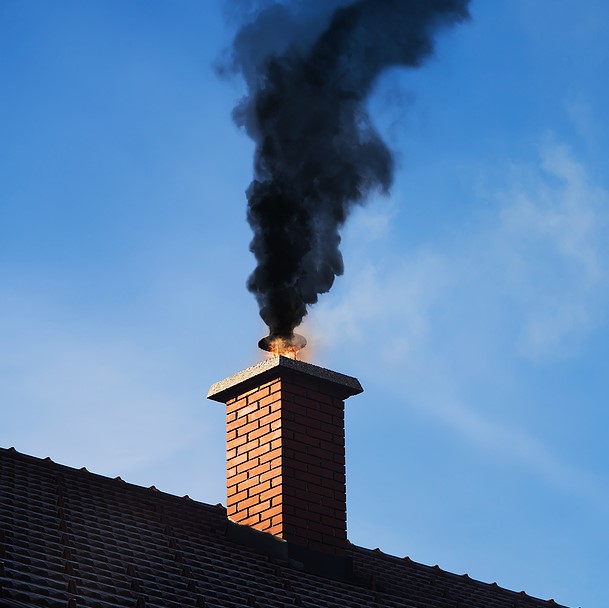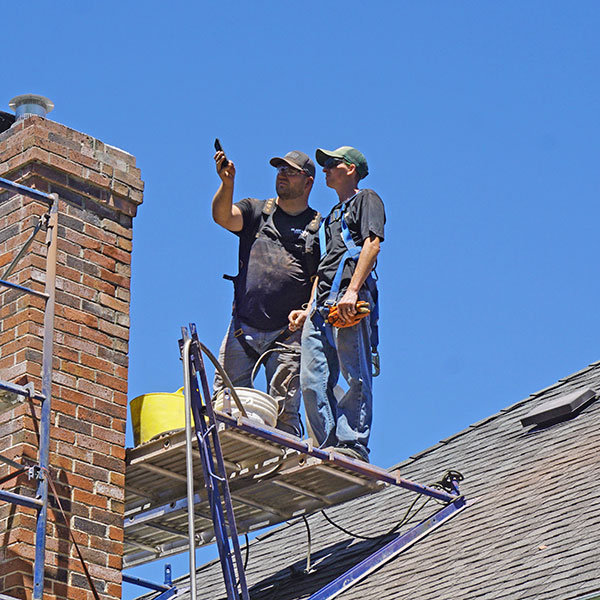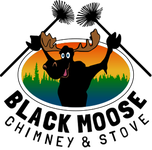 Chimney fires come in all shapes and sizes. Not all of them are catastrophic blazes. Many are small and brief – but even the smallest chimney fire can begin a cycle of damage to your chimney system. Here are some things you’ll want to know about chimney fires.
Chimney fires come in all shapes and sizes. Not all of them are catastrophic blazes. Many are small and brief – but even the smallest chimney fire can begin a cycle of damage to your chimney system. Here are some things you’ll want to know about chimney fires.
What causes chimney fires?
The majority of chimney fires are caused by creosote that catches on fire in your chimney flue or smoke chamber. Creosote is produced each time a wood fire is burned and can present as a sticky, flakey, puffy or solid substance.
Chimneys that have been operated for long periods of time without proper cleaning are more at risk of a chimney fire than those that are serviced annually with professional chimney sweeping and inspection.
What kind of damage can a chimney fire do?
Even “minor” chimney fires can begin to damage your chimney liner – whether it’s clay tile, stainless steel or a poured-in-place compound.
The materials used to build chimney liners are effective at containing the heat that moves into the flue during a fire, but they’re not built to withstand the greater heat of an actual fire – especially when the fire occurs over and over.
Once the liner is broken or cracked, flames can begin to degrade the interior chimney masonry. Depending on the location of the fire, flames can get into contact with walls, rafters, flooring and other building materials of the house.
Finally, chimney fires can cause damage to the chimney cap at the top of the chimney, the surfaces of the smoke chamber located just above the firebox and even sections of the roof close to the chimney. Chimney fires are equal-opportunity destroyers.
How can I tell if I’m having a chimney fire?
If you have a major chimney fire, you’ll know it. Smaller fires do have signs, however. They include:
- An odd tapping or clicking sound
- A rumbling sound like from a distant train
- Excess dense, black smoke coming from either end of your chimney
If you notice any of these signs, call 911 immediately and put out the fire in your fireplace if you can do so safely.
How can I prevent a fire in my chimney?
The best way to prevent chimney fires is to have your chimney flue professionally cleaned once a year. The person who does this work should be experienced and certified through the Chimney Safety Institute of America (CSIA).
Only a licensed chimney sweep has the industry-grade tools and training to safely remove creosote and other debris that could lead to drafting blockages. Scheduling yearly cleanings is a critical part of wood fireplace maintenance.
 Chimney inspections
Chimney inspections
If you know or suspect you’ve had a chimney fire, a chimney inspector needs to take a look at the system before you use your fireplace again. Most chimney sweeps also are qualified to perform chimney inspections, so you may be able to have both the inspection and the cleaning done on the same visit.
Black Moose Chimney & Stove of Antrim, NH, provides CSIA-certified chimney sweep services, professional chimney inspections and all manner of chimney repairs and rebuilding work. If you’ve had a chimney fire or want to prevent one, we’re ready to serve you all year long. Call (603) 525-7905.


